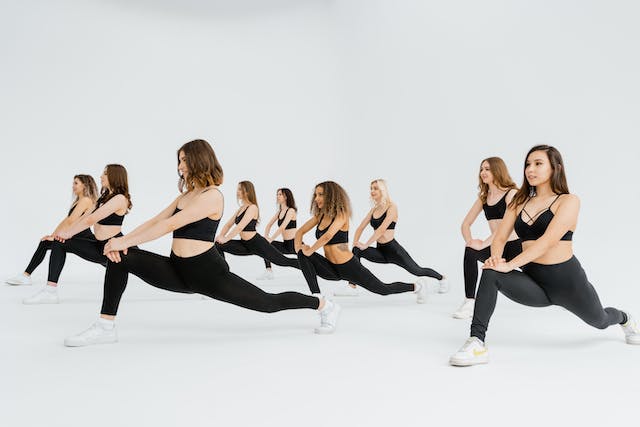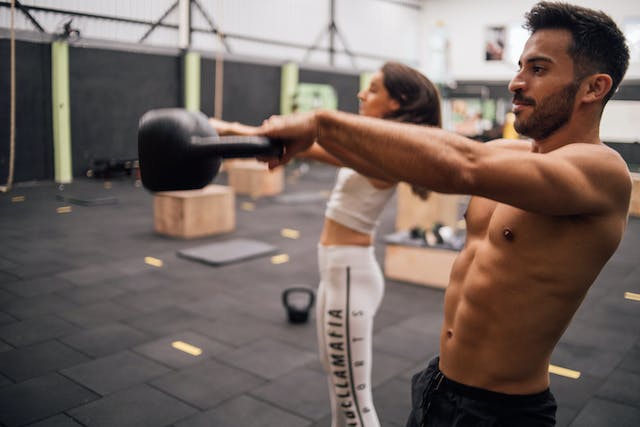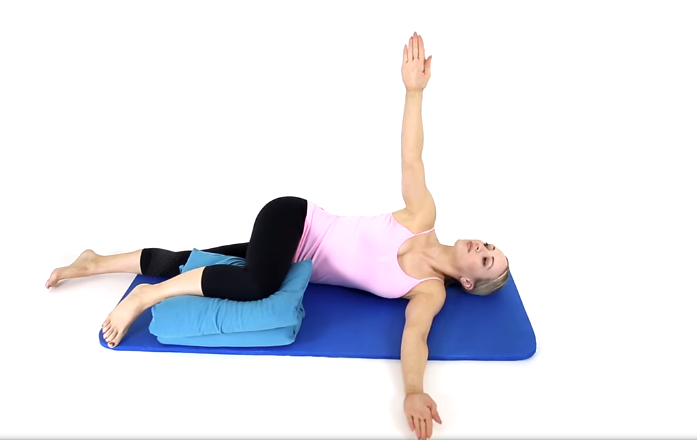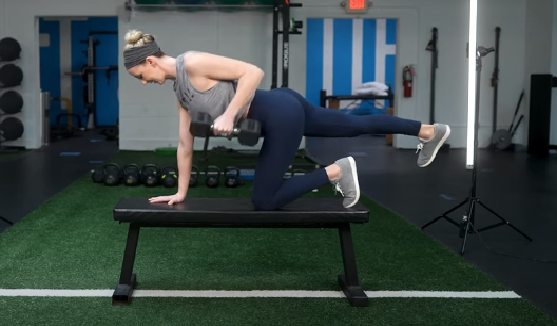Ready to take your leg day to the next level? Plyometric lunges are about to become your new favorite workout buddy! These explosive lunges not only sculpt your lower body but also add a burst of cardio fun to your routine. Let’s dive into the energizing world of plyo lunges and discover the benefits of this dynamic exercise!
What Are Plyo Lunges
Plyo lunges, short for plyometric lunges, are a high-intensity exercise that combines the benefits of traditional lunges with an explosive, jumping element.
In a plyo lunge, you swiftly switch between lunging positions, engaging multiple muscle groups, and adding an element of cardiovascular intensity.
This dynamic movement not only strengthens your legs but also enhances agility and power. Get ready to elevate your leg workout with the exciting plyo lunge challenge
Practice Lateral walks for better performance with Plyo lunges

Muscle Worked
- Quadriceps (Front Thigh Muscles): Engaged during the downward phase and explosive jump.
- Hamstrings (Back Thigh Muscles): Activated when extending the back leg during the lunge.
- Glutes (Buttocks Muscles): Worked when pushing off the ground during the jump.
- Calves: Contracted during the push-off and landing phases.
- Core Muscles: Engaged for stabilization and balance during the exercise.
Performing Plyo Lunge: Step-by-Step Guide
Follow these simple steps to ensure you’re getting the most out of this dynamic exercise:
- Starting Position: Begin in a standard lunge position, right foot forward and left foot back, maintaining a 90-degree angle with both knees.
- Engage Your Core: Tighten your core muscles for stability and balance throughout the movement.
- Explode Upward: Propel your body upward, switching your leg positions mid-air.
- Land Softly: As you descend, land softly with a controlled motion, ensuring your knees are aligned.
- Repeat Alternating Legs: Continue alternating legs with each jump, maintaining a steady rhythm.
Pro Tips:
- Keep It Controlled: Focus on controlled movements to avoid unnecessary strain.
- Modify as Needed: Beginners can start with standard lunges before progressing to plyo lunges.
Benefits of Plyo Lunge: Unleashing Power with Joy!
- Plyo lunges enhance explosive power, working multiple muscle groups simultaneously for a more dynamic workout.
- Elevate your heart rate, turning plyo lunges into an effective cardiovascular exercise for improved endurance.
- Burn calories efficiently, contributing to weight management and overall fitness goals.
- Improve agility and coordination as you navigate the quick transitions between lunges.
- As the studies shows that Plyo lunges enhance neuromuscular coordination, ensuring more efficient and automatic movements during various activities, thanks to the training effect of plyometrics.
Avoid This Mistakes
- Neglecting Form: Maintain proper form to avoid unnecessary strain on joints and ensure maximum benefit.
- Overlooking Warm-Up: Always warm up before plyo lunges to prepare your muscles for the explosive movements.
- Ignoring Landing Technique: Focus on a soft landing to protect your knees and reduce impact on your joints.
- Skipping Progression: Gradually increase intensity to allow your body to adapt, preventing overexertion.
Plyo Lunges Workout Routine
| Set | Exercise | Reps | Rest Time Between Sets |
| 1 | Plyo Lunges | 10 (each leg) | 60 sec |
| 2 | Plyo Lunges (Alternating) | 12 (total) | 45 sec |
| 3 | Plyo Jump Lunges | 15 (each leg) | 60 sec |
| 4 | Box Jumps | 10 | 45 sec |
| 5 | Plyo Lunges | 15 (each le) | 60 sec |
What Are The Needed Equipment For Plyo Lunges ?
Plyo lunges are primarily a bodyweight exercise designed to improve strength and cardiovascular fitness without the need for extensive equipment.
But ..
Comfortable Workout Clothes: Wear athletic shoes and breathable clothing that allows for a full range of motion.
Open Space: Perform plyo lunges in a clear, open space to ensure safety and freedom of movement.
Optional Mat: If you’re working out on a hard surface, consider using a fitness mat for added comfort.
The Difference Between Walking Lunge And Plyo Lunge
Walking Lunge: A walking lunge involves stepping forward with alternating legs, focusing on controlled movements and targeting the quads, hamstrings, and glutes for strength and stability.
Plyo Lunge: On the other hand, plyo lunges introduce a dynamic jump between lunges, adding an explosive element to elevate heart rate, improve coordination, and enhance overall leg power.
Here’s The Variations For Progress
Forward and Backward Plyo Lunges:
Alternate between forward and backward lunges, engaging different muscle fibers and enhancing agility. Keep a brisk pace for a dynamic cardio boost.
Side-to-Side Plyo Lunges:
Step laterally, emphasizing the inner and outer thighs. This variation adds a lateral challenge, targeting hip stability and promoting well-rounded leg strength.
180-Degree Jump Switch Lunges:
Execute a jump turn between lunges, incorporating plyometric elements for increased intensity. This dynamic movement elevates heart rate and builds explosive lower-body power.
Related Articles
Banded Lateral Walks Guide For Beginners



